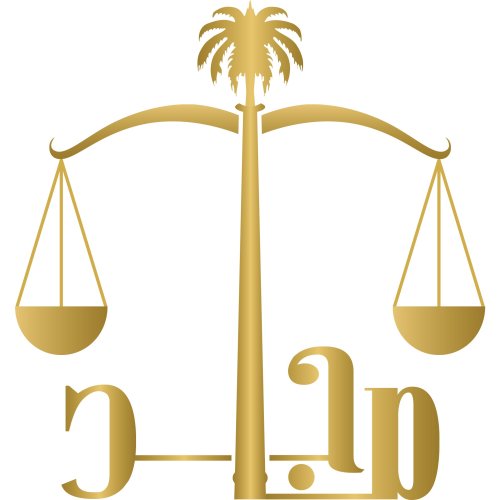Best Employment Rights Lawyers in Riyadh
Share your needs with us, get contacted by law firms.
Free. Takes 2 min.
List of the best lawyers in Riyadh, Saudi Arabia

Saudi Arabia Employment Rights Legal Articles
Browse our 1 legal article about Employment Rights in Saudi Arabia written by expert lawyers.
- Understanding the Saudi Arabian Labor Law for Employers
- Driven by projects like Vision 2030, Saudi Arabia's ambitious economic reform has produced a dynamic and ever more appealing environment for local and multinational companies. Effective management of human resources becomes a pillar of success as the private sector grows. But with such an opportunity also comes the great responsibility... Read more →
About Employment Rights Law in Riyadh, Saudi Arabia:
The employment rights law in Riyadh, Saudi Arabia, is governed primarily by the Labour Law issued by the Ministry of Labour. This law protects the rights of both workers and employers, outlining provisions related to hiring procedures, contract terms, termination conditions, working hours, vacation and public holidays, sick leave, maternity leave, and other essential aspects. The law embodies the principles of fairness, equality, and protection against exploitation.
Why You May Need a Lawyer:
Employment-related legal matters can be complex and challenging to navigate without professional assistance. If you are faced with workplace discrimination, unfair dismissal, harassment at work, or any dispute related to wages, benefits, or conditions of employment, you may need to consult a lawyer. Lawyers can also be invaluable in understanding and enforcing contractual rights and obligations or in cases where you need representation in front of regulatory authorities or in a court of law.
Local Laws Overview:
The key aspects of local employment laws you should be aware of include the rules related to employment contracts, termination rights, end of service rights, working hours, annual leave, and sick leaves. The Labour Law in Saudi Arabia requires all employment contracts to be in writing and stipulates a standard probation period, maximum working hours, minimum rest periods, and provisions for weekend and public holiday work. There are also specific laws and rules related to female employment, including restrictions on night work and heavy work, specific break provisions and childcare arrangements for working mothers.
Frequently Asked Questions:
Question: What are my rights regarding overtime work?
The Labour Law stipulates that any work performed beyond the standard working hours should be considered overtime, for which you should be paid at the rate of additional 50% of your regular wage.
Question: Can my employer terminate me without notice?
The law requires that an employer should provide a worker with a written notice 60 days before termination in indefinite contracts, but there are some exceptions to this.
Question: What rights do I have in terms of annual leaves?
As per labour law, you are entitled to a minimum of 21 days of paid annual leave. If you have worked for the employer continuously for five years, your annual leave entitlement increases to 30 days.
Question: How many hours can I be legally asked to work per day?
The Saudi Labour Law sets the maximum standard working hours at eight per day. During Ramadan, the working hours shall be reduced to a maximum of six hours per day or thirty-six hours per week.
Question: Are there special provisions for working mothers?
Yes, the Labour Law provides certain protections for working mothers, including maternity leave, nursing hours, and provisions related to childcare.
Additional Resources:
For additional information and assistance, you can reach out to the Ministry of Human Resources and Social Development, which can offer guidance and help about labour law and services related to employment. The Ministry provides several online services, reports, and publications to assist individuals in understanding and navigating their rights and responsibilities at work.
Next Steps:
If you feel like your employment rights have been violated or need legal advice related to employment law, you should consult a lawyer specialising in this field. An experienced legal professional can help you understand the specifics of your situation, provide advice on how to proceed, and represent you in negotiations with your employer or in court proceedings if required.
Lawzana helps you find the best lawyers and law firms in Riyadh through a curated and pre-screened list of qualified legal professionals. Our platform offers rankings and detailed profiles of attorneys and law firms, allowing you to compare based on practice areas, including Employment Rights, experience, and client feedback.
Each profile includes a description of the firm's areas of practice, client reviews, team members and partners, year of establishment, spoken languages, office locations, contact information, social media presence, and any published articles or resources. Most firms on our platform speak English and are experienced in both local and international legal matters.
Get a quote from top-rated law firms in Riyadh, Saudi Arabia — quickly, securely, and without unnecessary hassle.
Disclaimer:
The information provided on this page is for general informational purposes only and does not constitute legal advice. While we strive to ensure the accuracy and relevance of the content, legal information may change over time, and interpretations of the law can vary. You should always consult with a qualified legal professional for advice specific to your situation.
We disclaim all liability for actions taken or not taken based on the content of this page. If you believe any information is incorrect or outdated, please contact us, and we will review and update it where appropriate.
















